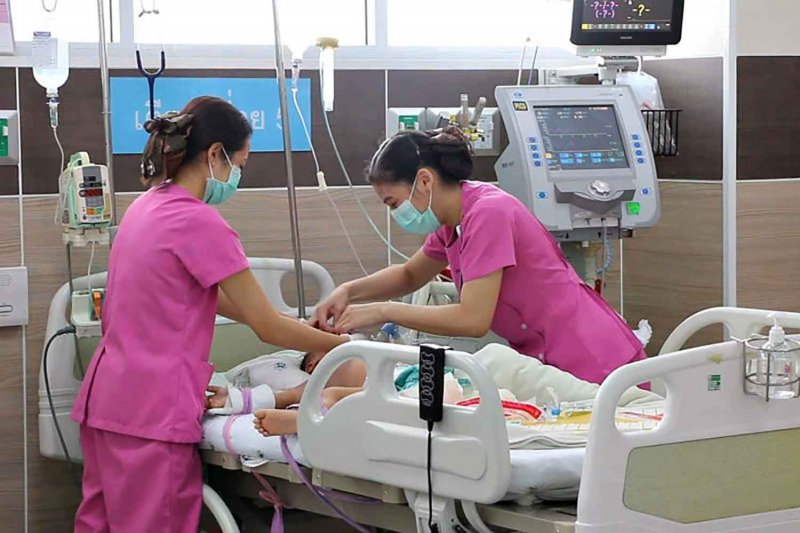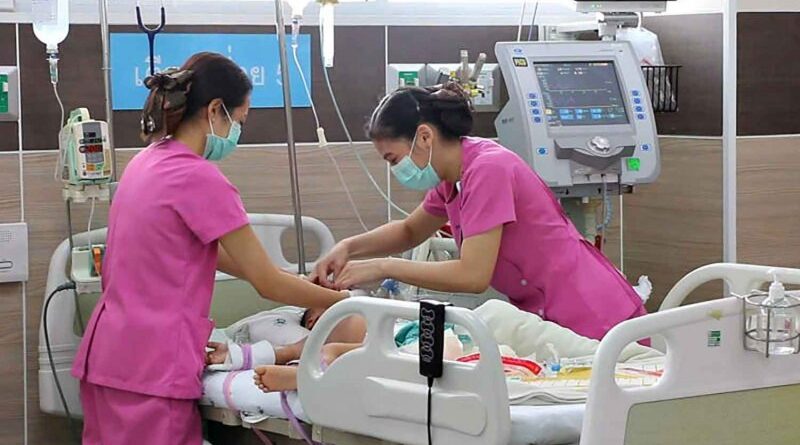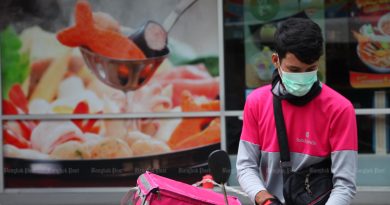Doctor touts antibody in RSV fight

Queen Sirikit National Institute of Child Health is urging parents to protect their children from Respiratory Syncytial Virus (RSV), especially during its seasonal peak, by using passive immunity.
This approach is particularly effective for toddlers, a group that faces a high risk of severe illness and death from RSV.
Dr Arkom Chaiwerawattana, director of the institute, highlighted the benefits of Nirsevimab (Beyfortus), a monoclonal antibody that provides up to six months of protection with a single dose. “This is far more convenient than alternatives requiring monthly injections,” he said.
Nirsevimab is suitable for infants and young children, he said, and has shown strong efficacy in preventing RSV-related hospitalisations.
Under clinical guidelines from the Royal College of Paediatricians of Thailand, passive immunity should be administered to all infants under eight months of age.
It is also recommended for children under 12 months who are at higher risk due to conditions such as prematurity, chronic lung disease, or congenital heart defects. The injection should ideally be given before the RSV season, which typically spans from June to November.
For high-risk children, passive immunity may be extended until they are two years old. However, if a child has already contracted RSV, the antibody should not be administered that year.
For healthy newborns, it is recommended that mothers receive the preventive dose 14 days before delivery to help protect their babies.
Side effects from Nirsevimab are rare, with only 0.9% of cases reporting mild skin rashes, indicating a high safety profile.
The Department of Medical Services reports the RSV mortality rate among children under one year old is 1.75 per 100,000 — higher than in older age groups.
International studies show that Nirsevimab reduces hospitalisations by 81% and has a 79.3% efficacy rate in preventing RSV infections, making it a vital tool for protecting vulnerable children.
Meanwhile, the Department of Disease Control has issued a warning about the rising number of RSV cases during the rainy season.
From Sept 7–13 alone, 3,454 new cases were reported.
From January to mid-September, the total number of infections reached 16,145, with two reported deaths, most of them among children under four years old.
Source – Bangkok News




